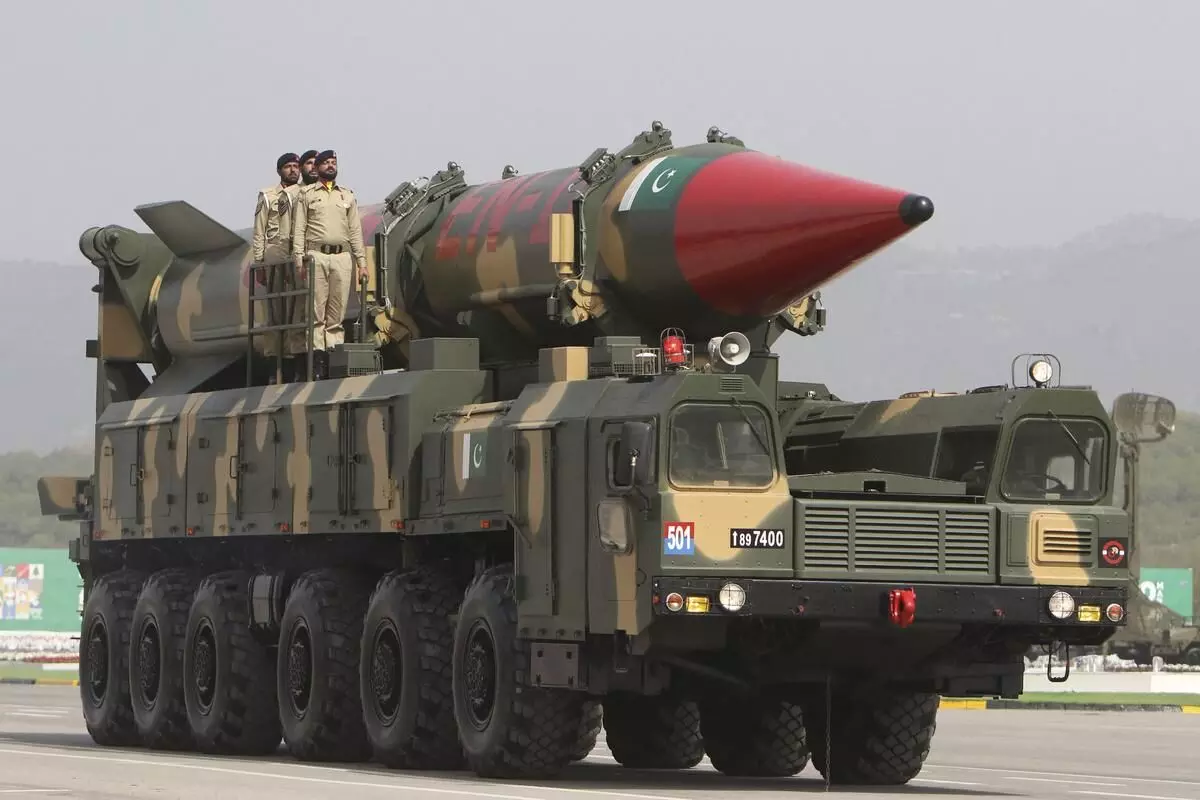Pakistan developing long-range nuclear missile capable of reaching US: Report

Pakistan is reportedly developing a nuclear-tipped intercontinental ballistic missile (ICBM) capable of reaching the United States, according to intelligence gathered by US agencies. A report published, has raised alarms in Washington, suggesting that Pakistan is upgrading its nuclear arsenal with support from China—particularly in the wake of India’s recent Operation Sindoor.
The report, citing senior US officials, warns that if Pakistan acquires such long-range nuclear capability, it would be formally treated as a "nuclear adversary" by the United States. Currently, only Russia, China, and North Korea fall under that category.
“If Pakistan acquires an ICBM, Washington will have no choice but to treat the country as a nuclear adversary,” a US official was quoted as saying. “No country with ICBMs capable of targeting the US is considered a friend.”
Historically, Pakistan has maintained that its nuclear program is focused solely on deterring India. Its missile development has primarily centered on short- and medium-range systems. The most advanced missile publicly tested so far is the Shaheen-III, with a range of around 2,700 km—enough to cover major Indian cities but far short of ICBM range, which exceeds 5,500 km.
However, US intelligence now suggests that Pakistan may be shifting its focus, seeking a deterrent not just against India but also against any potential American intervention. This comes amid concerns that Washington might one day attempt to neutralize Pakistan’s nuclear arsenal, particularly during a crisis.
Last year, the US imposed fresh sanctions on Pakistan linked to its long-range missile development. The penalties targeted the National Development Complex—Pakistan’s key missile development agency—as well as three other firms. These sanctions froze any US-held assets and banned American companies from conducting business with the entities.
While Islamabad slammed the move as “unfair and biased,” the US State Department maintained that Pakistan was actively seeking components for expanding its ballistic missile capabilities.
Pakistan currently holds an estimated 170 nuclear warheads and remains outside the Nuclear Non-Proliferation Treaty (NPT), which is designed to prevent the spread of nuclear weapons and promote peaceful nuclear cooperation.
The revelations come just weeks after India’s Operation Sindoor, a large-scale military offensive during which Indian forces reportedly destroyed nine terror camps and hit 11 key airbases inside Pakistan.
In response, Islamabad allegedly launched its Fatah-II hypersonic ballistic missile at Indian targets. However, the missile was intercepted by India’s air defense systems, according to reports.
The operation has intensified scrutiny over Pakistan’s nuclear intentions, with Indian Defence Minister Rajnath Singh publicly calling on the International Atomic Energy Agency (IAEA) to monitor Pakistan’s nuclear facilities.
US World Threat Assessment report states, Pakistan, unsettled by Operation Sindoor, has been sourcing nuclear-related materials and technology from China—raising fresh concerns about proliferation and regional stability.
With tensions on the rise, Washington is keeping a close eye on the situation, increasingly concerned about the possibility of Pakistan becoming the newest country capable of launching a nuclear strike on American soil.
